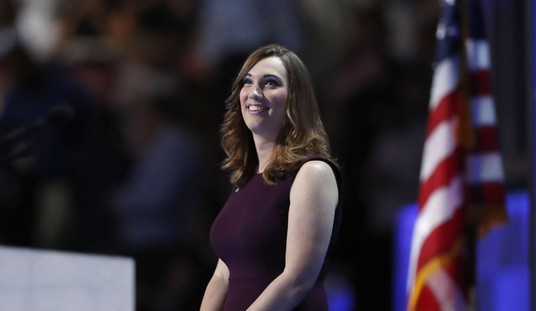One of the most important aspects of professional sport, aside from its entertainment and distraction value, is its symbolic relevance to the affairs of everyday life on both the social and political planes. The lessons of sport, were they only attended to, would illuminate much about the obscurities, contradictions, clichés, and unreflectiveness of our staple practices and convictions.
Take, for example, the political bromide of affirmative action. The argument that presumably validates this egalitarian and expiatory project is that members of groups that have suffered from past exclusionary policies must be recompensed, regardless of individual merit. They are thus promoted to positions for which they might not be most competent or are accorded favorable treatment at the expense of those who may be more qualified in the field in question. We have remarked how hiring quotas in the business world or university scholarship programs and tenure-track posts are skewed in such a way that the more proficient are often displaced by the less capable. Academia has a nice way of legitimizing culpable appointments: it’s called an “equity policy,” though a better term might be a “lobotomy ticket.” The Humanities and Social Sciences in particular have reinterpreted their mandate. Their mission is no longer pedagogical but salvific. They are no longer charged to teach the time-honored curriculum, the great books, or the elements of their subjects but to redeem society from itself, in so doing turning a cadre of scholars into a staff of politically motivated social workers.
But the malaise is ubiquitous. The theory is that correcting a past injustice, even when it no longer exists, trumps impartial judgment, and that making amends or “changing the social landscape” is more urgent than ensuring talent, skill, and personal endowment. Objective factors no longer count when racial diversity, proportional representation, and remedial compensations take precedence over personal responsibility and individual worth. The result, of course, is varying levels of social dysfunction as the therapeutic mindset that pervades contemporary society engineers the gradual and inexorable erosion of cultural integrity, professional ability, and intellectual distinction. Greater promise and stellar achievement are inadmissible criteria.
Except in sport. After all, affirmative action applied to a competitive NBA team would see seven-foot African-Americans deprivileged in favor of short white men who couldn’t swish the basket if their lives depended on it. Football clubs would draft ninety-nine pound weaklings to play on the offensive line since the sallow and scrawny are entitled to preferential treatment in areas where they have been cruelly prevented from exercising their lack of suitability. Baseball would feature limp-armed pitchers, riddled fielders, and whiffable batters who would otherwise have experienced the indignity of prejudicial exclusion and the inequitable rigors of excellentism. Hockey would open its bench to wretched skaters with no stickhandling expertise and to goaltenders terrified of flying pucks through no fault of their own. Sport remains the one sphere in which “elitism” is not a dirty word. (However, the anti-elitism movement may be coming to a stadium near you soon; we have begun to see the advent of children’s matches where the better team is chastised for running up the score when playing against an obviously inferior opponent, or where the score is not kept at all so that no one is humiliated.)
Clearly, we suffer as a society from the debilitating infirmity of cognitive dissonance. We are immune to what Leon Festinger in a classic analysis of the subject, When Prophecy Fails, calls “disconfirmation,” which would introduce a “painful dissonance” into our belief systems. Thus we serenely accept in one domain what we would adamantly reject in another. We want our sports to be cutting-edge and the teams we cheer for to excel on the playing surface. We want to win. But in business, science, academia, the military, the trades, and professions, we are willing to lose.
In the province of sport, we are, it seems, churlishly reluctant to root for the opponent. When it comes to the composition of the home team, we want the “brain trust” to sign the best players at every position, regardless of race, creed, or political affiliation. Should management falter in its duty to draft well and hire intelligently, performance is demonstrably weakened, gate receipts tend in many cases to fall off, and ridicule and dissatisfaction are the rewards of evident unfitness. But in the social and cultural realms, a very different attitude prevails. We are content to tolerate mediocrity and inefficiency so long as our cherished and often flawed assumptions regarding the origin and nature of social disparities are kept intact — even if, in the sequel, social functioning is impaired and everybody suffers the consequences.
The plain fact is that what we thoughtlessly conceive as “social justice” leads inevitably to communal decay and a species of undeniable injustice. The social desideratum with respect to the political, economic, and professional sectors should be, not to stack the deck or lavish handicap adjustments on the disadvantaged, but to provide a level playing field for all contenders, applicants, and potential candidates in any designated vocation. Justice for the aggregate must begin with justice for the individual, whether considered as a member of the group or as a citizen of the larger community. There is no other way to secure justice for the collective. You don’t want a host of banausics who enter the work force and professional classes owing not to natal aptitudes and felicitous work habits but to the patronage of misguided idealists. On the contrary, you want people who can do the job and actually live up to their credentials.
Professional sport is a working model for a successful society. It is a rule-dominated affair enacted in a stipulated area with visible boundaries that cannot be transgressed. Society, too, properly understood, is rule-oriented, its transactions governed by laws, statutes, codes of behavior, and a clearly marked legal space in which the “game” can unfold without descending into anarchy. And, no less crucially, as in professional sport, society requires the appropriate personnel at all the sensitive nodes, people who know what they are doing and are able to do it well, ultimately for the benefit of others.
To privilege those who may be inadequate to the task at hand or to the demands of a given discipline, office, or occupation is to guarantee failure for all. The cost may sometimes be high but refusing to accept it is frankly unaffordable. You play to win and you pay to win.









Join the conversation as a VIP Member